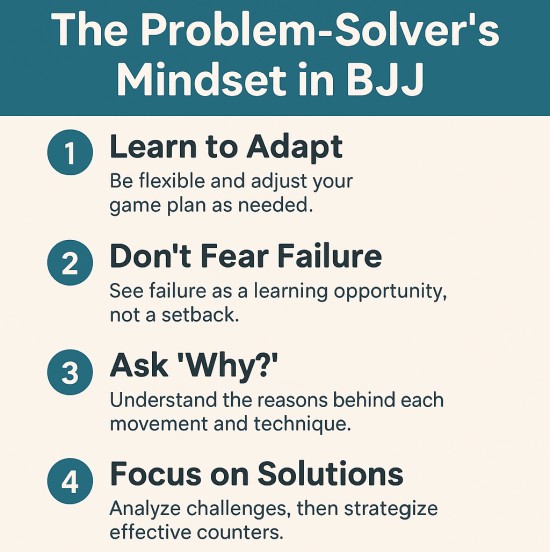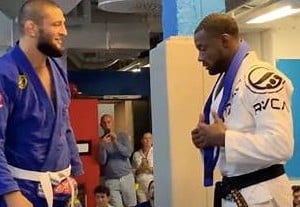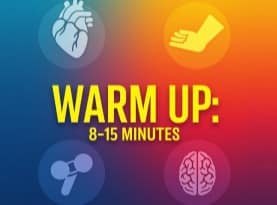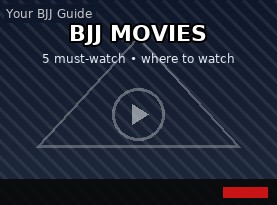The Problem-Solver’s Mindset in BJJ: How to Train Smarter and Learn Faster
In Brazilian Jiu-Jitsu, physical ability and mat time are essential, but the grapplers who improve the fastest often have something else: a problem-solver’s mindset.
This mindset isn’t about memorizing moves or collecting techniques. It’s about approaching every roll, drill, and training session as a chance to test, fix weaknesses, and build an adaptable, efficient game.

What Is the Problem-Solver’s Mindset?
A problem-solver sees BJJ not as a fixed syllabus of techniques, but as an evolving puzzle. Instead of asking “What move should I do here?”, they ask questions like:
- Why did that pass work on me?
- What is the actual problem I’m trying to solve in this position?
- Can I create a constraint-led games to help me figure it out?
They’re not afraid of failure; they use it. Every tap, escape, or bad position becomes feedback to improve.
How It Looks on the Mat
Grapplers with this mindset:
- Choose one specific goal during sparring (e.g., improving back escapes or grip fighting)
- Don’t rush to “win” rounds
- Use journaling, video, or review notes to identify patterns and solutions
- Regularly revisit core positions to test adjustments
- Embrace constraint-led training and positional sparring
Why This Mindset Works (Especially for Older or Hobbyist Grapplers)
The problem-solver’s mindset is beneficial for:
- Older grapplers who can’t rely on athleticism
- Beginners are overwhelmed by too many techniques
- Intermediate players stuck at a plateau
- Busy professionals who train a few times per week
Instead of trying to master every detail of every move, you focus on solving your most immediate problems, making every round more meaningful.
You can pair this with our article on the best BJJ instructionals for older grapplers, emphasizing learning through principle-based teaching and energy efficiency.
How to Build the Problem-Solver’s Mindset
- Pick one focus per session. Just one. For example, “I want to stop getting my guard passed.”
- Create mini-games or constraints. Start every roll from guard retention and work only on that.
- Reflect regularly. What went wrong? What improved? What did your training partner do that surprised you?
- Watch instructionals like a coach, not a collector. Study them with a goal in mind—not just to accumulate moves.
Need help choosing the right instructionals for this approach? Check our curated list of the best BJJ instructionals with concept-based systems.
Summary
Brazilian Jiu-Jitsu is not just a fight; it’s a mental game. The problem-solver’s mindset helps you train with intention, learn faster, and adapt better; whether you’re a white belt, a seasoned practitioner, or someone getting back on the mats at 40.
Stop collecting techniques. Start solving problems. That’s where real progress begins.
Related Reading
- Why Memorizing Moves is Not Efficient
BJJ is not only about remembering moves - The Science Behind Game-Led Learning
Why playing games is a faster way to learn - Games for Beginners
Four ecological games to start with




